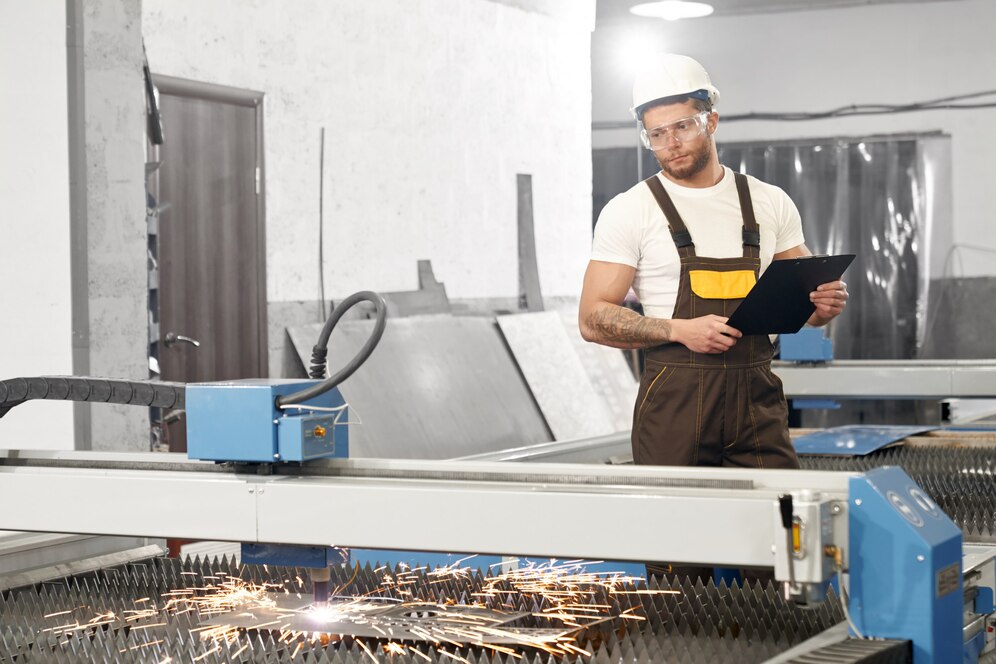Table of Contents
The Rise of CNC Machines
Computer Numerical Control (CNC) machines have revolutionized the manufacturing industry, allowing for precision and efficiency like never before. The rise of these machines can be attributed to their ability to automate tasks that were previously labor-intensive and time-consuming. By using computer programs to control the movement of tools and machinery, CNC machines have streamlined the manufacturing process and reduced the margin of error significantly.
One of the key advantages of CNC machines is their ability to produce complex and intricate parts with high precision. By following detailed instructions programmed into the system, these machines can execute tasks with incredible accuracy, leading to a higher quality end product. This level of precision has allowed manufacturers to push the boundaries of what is possible, creating innovative designs that were once thought to be unattainable.
As the demand for customized and specialized products continues to grow, CNC machines have become an indispensable tool for manufacturers looking to stay competitive in today’s market. With the ability to create unique components quickly and accurately, these machines have opened up a world of possibilities for designers and engineers. The rise of CNC machines marks a new era in manufacturing, where creativity and innovation are no longer limited by the constraints of traditional methods.
The Future of Manufacturing
The future of manufacturing lies in the hands of CNC machines, as they continue to push the boundaries of what is possible in terms of precision and efficiency. With advancements in technology allowing for even greater levels of automation and control, these machines are poised to revolutionize the industry in ways we have yet to imagine. From 3D printing to multi-axis machining, the possibilities are endless when it comes to the future of manufacturing with CNC machines.
One of the key trends shaping the future of manufacturing is the integration of artificial intelligence (AI) and machine learning into CNC machines. By harnessing the power of AI, these machines can optimize their processes in real-time, making adjustments and improvements on the fly. This level of adaptability allows manufacturers to improve efficiency and productivity, ultimately leading to cost savings and a competitive edge in the market.
Another aspect of the future of manufacturing with CNC machines is the concept of lights-out manufacturing, where machines operate autonomously with minimal human intervention. This 24/7 production model allows for continuous manufacturing without the need for breaks or downtime, resulting in increased output and reduced lead times. As technology continues to evolve, we can expect to see even greater levels of automation and efficiency in the future of manufacturing with CNC machines.
Sustainability and CNC Machines
In addition to their precision and efficiency, CNC machines are also playing a crucial role in promoting sustainability in the manufacturing industry. By optimizing the use of raw materials and reducing waste, these machines are helping to minimize the environmental impact of manufacturing processes. With the ability to recycle and reuse materials more effectively, CNC machines are contributing to a more sustainable approach to production.
Furthermore, CNC machines are enabling manufacturers to create lighter and more energy-efficient products, reducing the overall carbon footprint of the manufacturing industry. By using precise cutting and shaping techniques, these machines can create components that require less material and consume less energy during use. This focus on sustainability is not only beneficial for the environment but also for the bottom line of businesses, as cost savings can be realized through more efficient production methods.
Overall, the integration of CNC machines into manufacturing processes is paving the way for a more sustainable and environmentally conscious industry. As companies continue to prioritize sustainability in their operations, CNC machines will play a key role in driving innovation and efficiency while minimizing the impact on the planet. By embracing these technologies, manufacturers can not only improve their bottom line but also contribute to a greener future for generations to come.
Photo source: freepik.com


